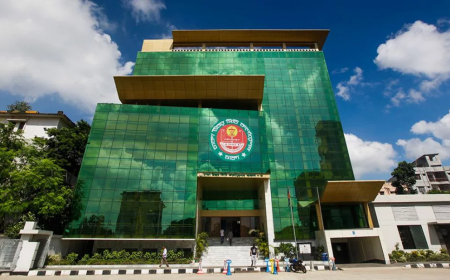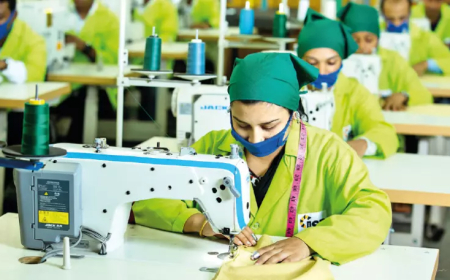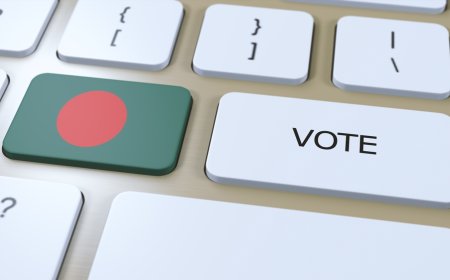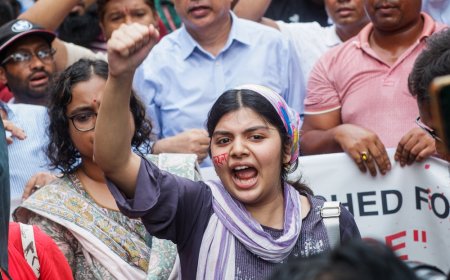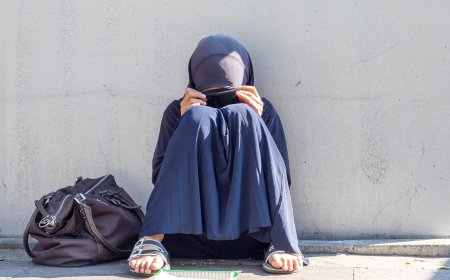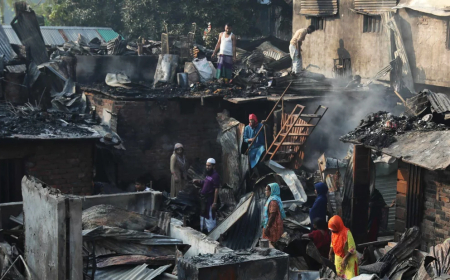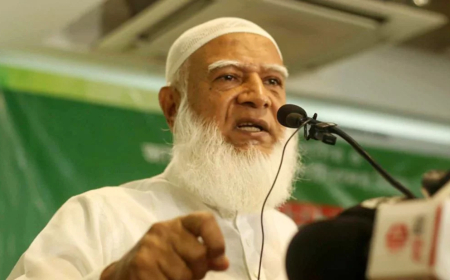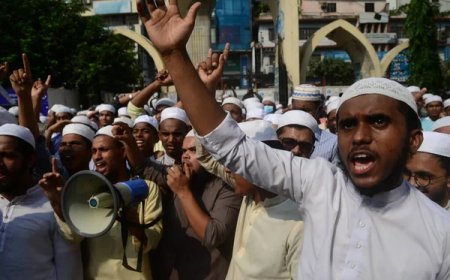The Rise and Fall of the July Revolution
The choice lies with us -- the collective will of the people across all sections of society. The coming months, leading up to the election, will determine which road Bangladesh takes.
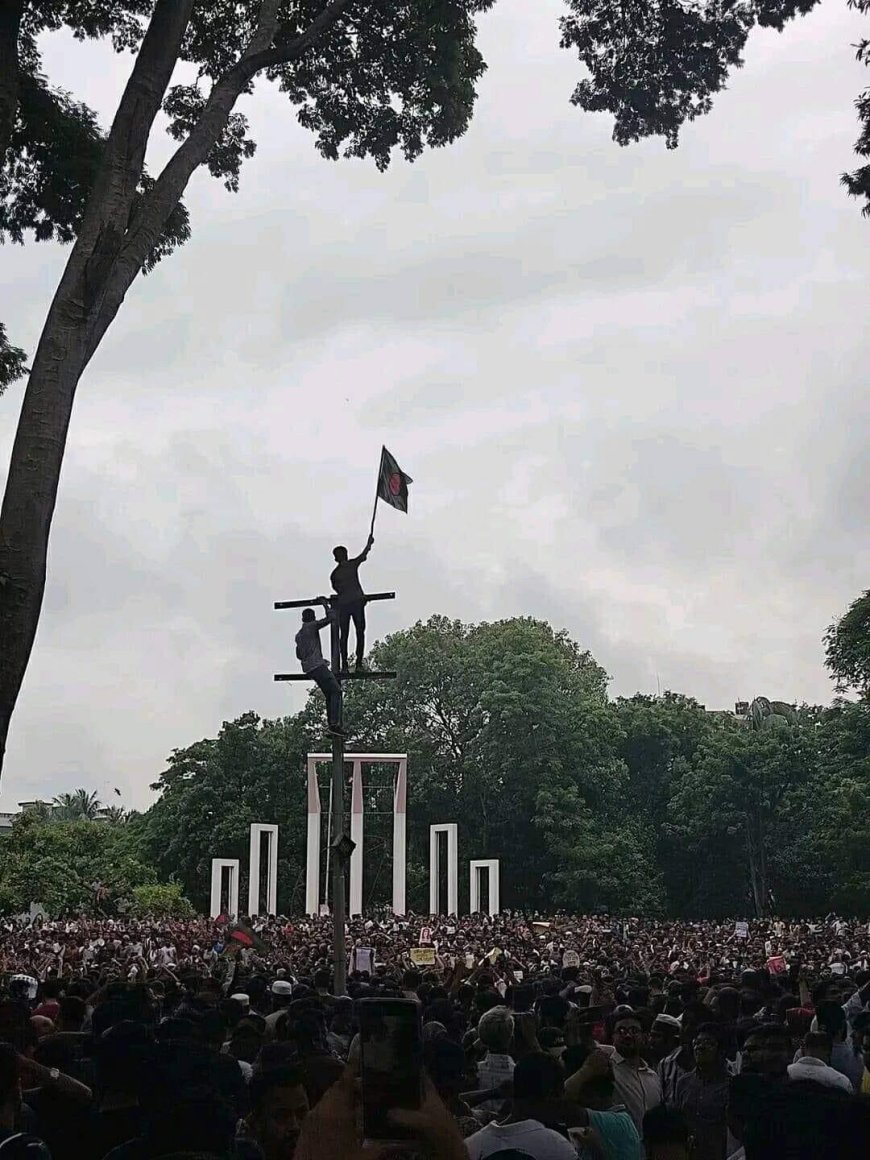
I am sure the title of this article will invite criticism from various quarters -- but the truth must be told.
There is no denying the leading role played by the Students Against Discrimination movement, together with the general public, in toppling Sheikh Hasina’s decade-and-a-half long mafia-style rule. That was the most significant and historic achievement of the revolution -- though it came at a terrible cost: nearly two thousand lives lost and thousands more maimed or grievously wounded.
The ground had already been made combustible by the relentless movements of the opposition parties over the past sixteen years. All that was needed was a spark -- and our young students, both male and female, provided exactly that. Hasina’s edifice of arrogance, kleptocracy, and authoritarian power collapsed like a house of cards, forcing her and her coterie of criminal associates to flee the country on August 5, 2024.
Although a soothing breeze of hope, mingled with the monsoon air, briefly swept across the nation, it soon dissipated -- choked by the venomous fangs of the remnants Hasina had left behind. These hidden provocateurs, embedded in every institution of state, began to paralyze the country by staging blockades, attacking public offices, and fomenting political and communal violence. A section of the police and Ansar, who once served as Hasina’s enforcers, joined these elements in carrying out their destructive agenda.
The return of Nobel Laureate Professor Dr. Muhammad Yunus on August 8, 2024, and his assumption of leadership under pressure from student groups, was welcomed by the general public but did little to quell the ensuing anarchy. His heartfelt appeals fell largely on deaf ears.
For reasons perhaps known only to him, Dr. Yunus assembled a heterogeneous advisory council -- largely composed of NGO figures -- many of whom failed to connect with the populace. Meanwhile, segments of the media began to hound him with false, fabricated, and politically motivated allegations of corruption and personal gain. Even his laudable initiatives in education reform and transparent manpower export came under undeserved criticism.
Tragically, the revolutionary students -- once hailed as heroes and symbols of hope -- soon lost their luster and moral authority. Reports of rent-seeking, extortion, and interference in bureaucratic postings for personal or financial benefit have tarnished their image. It is a sad epilogue to what began as a high-pitched drama of courage and sacrifice.
Amid this fall from grace, the student leaders now appear adrift -- like a rudderless ship in search of safe harbor. Yet, it is not too late for them to pause and take stock. They seem to be in a haste to gain a slice of the government power, without fertilizing the ground.
Similar allegations have also surfaced against some members of the Advisory Council, while partisan workers from major political parties have increasingly re-entered the fray, seeking to regain lost ground.
A quiet lament is now audible in some quarters: If this is the fruit of revolution, what was wrong with Hasina’s rule? But such cynicism betrays our national character. The Bengali mind, as someone once observed, “repents its past, criticizes its present, and has no vision for the future.”
To be fair, the Interim Government has achieved some commendable results amid daunting challenges. Discipline has been restored in the financial and banking sectors; the flight of illegal capital abroad has been curtailed; foreign exchange reserves are rising; and remittances are showing a steady upward trend. What’s more important the IG has demonstrated what can be achieved through national consensus.
The political landscape, though fraught with rivalry and contention, is showing signs of cautious optimism. The National Consensus Commission has succeeded, at least partially, in bringing most political parties -- large and small -- to a shared platform. This is an encouraging sign, provided the signatories remain true to their commitments.
Barring unforeseen circumstances, the general election is likely to be held in February next year. All political parties and aspiring candidates are already mobilizing and campaigning earnestly. Yet, a dark cloud of uncertainty hangs over the horizon -- fueled not only by the operatives of the fallen regime but also by forces across the border, whose intentions are becoming unfailingly conspicuous.
Most parties have signed the national consensus document, although a few have appended dissenting notes -- not significant enough to derail the process. Some procedural hurdles remain regarding the proposed referendum on the July Charter, but these too should be resolvable before the election.
Regrettably, a section of our media -- aided by a few irresponsible YouTubers at home and abroad -- continues to spread conspiracy theories aimed at discrediting the Interim Government and subtly advocating for Hasina’s political rehabilitation.
A recent incident revealed the shallowness of certain media professionals. During a visit to New Delhi, as guests of India, they failed to question the Indian Foreign Secretary’s remarks on Bangladesh’s forthcoming election. When he expressed hope for a “free, fair, and inclusive” election, our journalists did not ask the obvious question: why did India remain silent when Hasina conducted three consecutive rigged elections between 2013 and 2024, consciously denying the people of those rights? The Foreign Affairs Adviser, Mr. Touhid Hossain, rightly chastised them for this lapse -- perhaps their gratitude to their hosts prevented them from causing any discomfort.
Except for a few respected professionals, many of our journalists still lack the confidence to ask probing questions of foreign dignitaries -- particularly when the color of their skin is white. I recall, during my tenure as Director General (Americas and Pacific) in the mid-1990s, how they would often request me to draft suitable questions for them before press briefings. That, sadly, reflected their professional standard.
Today, our nation stands at a crossroads -- one path leading toward a prosperous and just future, where citizens may live in dignity and peace; the other descending into a dark abyss with no way out. While much of the world is striving for new inventions, production, and innovation, we in Bangladesh seem preoccupied with discovering ever-new ways of destruction, demolition, and mob mobilization. It is time we rise above this self-destructive impulse and rise to the occasion -- to rebuild our nation with reason, responsibility, and renewed resolve.
The choice lies with us -- the collective will of the people across all sections of society. The coming months, leading up to the election, will determine which road Bangladesh takes.
The author is a freedom fighter, a retired Major and former Secretary to the Government and served as Ambassador to several countries. He can be reached by email at: [email protected].
What's Your Reaction?












